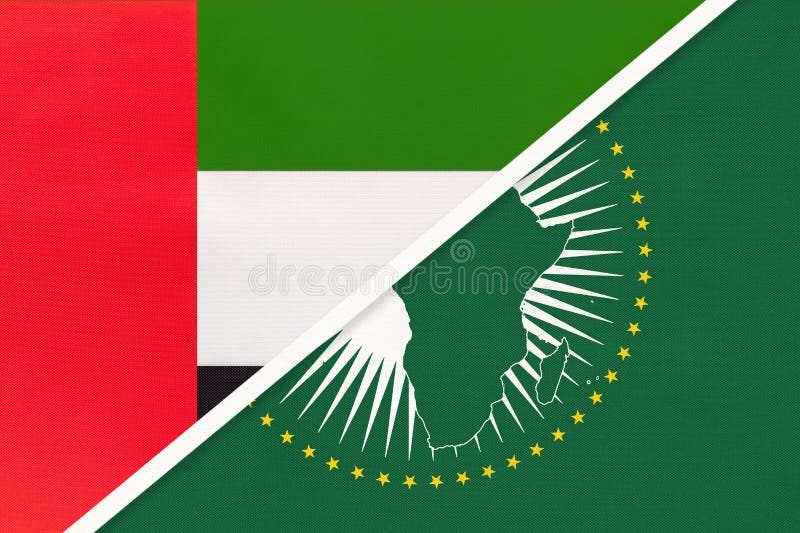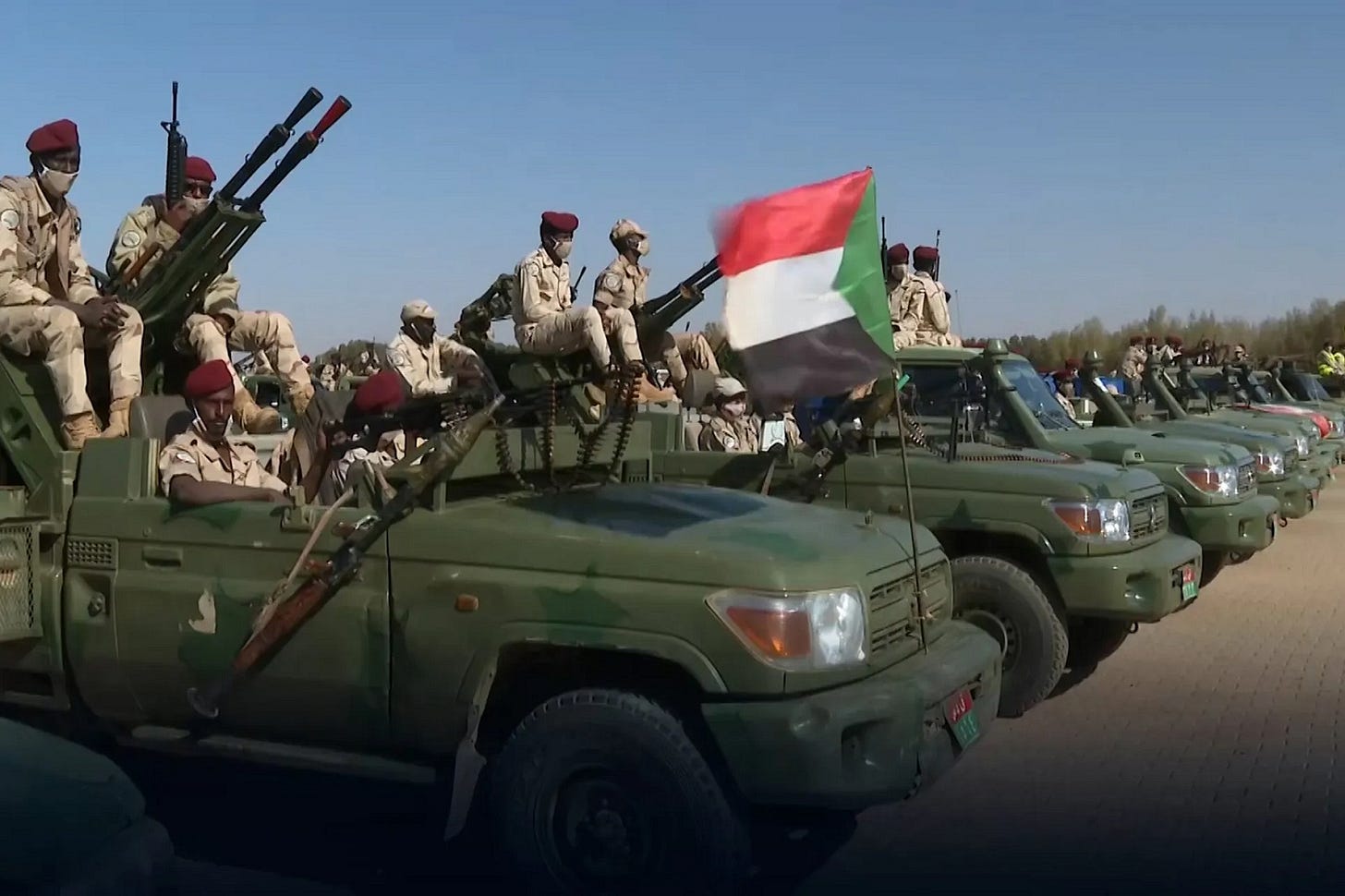Sub-Imperial Ambitions
As the United Arab Emirates aggressively expands its influence across Africa, we are witnessing the emergence of a sub-imperial power whose military interventions and covert operations threaten peace and stability in some of the continent's most vulnerable regions. Operating in the shadow of traditional Western powers yet pursuing its own distinct agenda, the UAE exemplifies a new form of regional imperialism that combines economic penetration with military muscle. Recent revelations about the Emirates' alleged role in Sudan's devastating civil war provide a troubling window into this broader strategy of control and domination.
The Architecture of Sub-Imperialism: The Sudan Case Study
Pressure is mounting on the UAE as it prepares to participate in peace talks in London aimed at stopping the war in Sudan. A leaked confidential UN report has raised fresh questions about the Emirates' role in the conflict, detecting "multiple" flights from the UAE to bases in Chad where arms smuggling across the border into Sudan has been monitored. These actions exemplify the UAE's emergence as a sub-imperial power - a regional actor that exercises imperial-like control within its sphere of influence while simultaneously operating within the constraints of the global power structure dominated by Western hegemony.
According to the report, these cargo flights demonstrated peculiar patterns, with planes often "disappearing for crucial segments" of their journey, a pattern UN experts said "raised questions of possible covert operations." While the experts could not conclusively prove these planes were carrying weapons, the flights coincided with an escalation of fighting in Sudan's Darfur region, particularly in El Fasher, where there was "a surge in drone activity primarily by the RSF for combat and intelligence."
The UAE has steadfastly denied supplying weapons to the Rapid Support Forces (RSF), the paramilitary group that has been accused of committing genocide. However, the timing of these revelations is particularly damning, coming just after RSF fighters killed more than 200 civilians in a wave of violence against vulnerable ethnic groups in displacement camps around the city of El Fasher.
Sub-Imperial Power Projection: Military Patterns and Dependencies
The allegations regarding Sudan are not isolated incidents but part of a broader pattern of UAE military involvement across Africa that fits the classic model of sub-imperialism. As a sub-imperial power, the UAE reproduces traditional imperial practices on a regional scale while simultaneously acting as a junior partner in the global capitalist system. As detailed in strategic assessments, the UAE's military activism in Africa follows three main patterns that mirror historical imperial control mechanisms:
Maritime Control: The UAE has focused on securing strategic maritime routes, particularly the Red Sea towards the Mediterranean and towards the Indian Ocean, creating dependencies that echo European colonial control of trade routes.
Military Support and Client State Development: The Emirates have established defence cooperation with multiple African states, providing military training, education, and equipment. This creates client-state relationships where recipient nations become increasingly dependent on UAE security provisions.
Proxy Warfare: Perhaps most controversially, the UAE has reportedly engaged in conflict landscapes such as Libya, Sudan, and Ethiopia, often denying such involvement while enhancing its influence through military support to non-state armed actors, a strategy that allows for plausible deniability while advancing geopolitical interests.
The Libya Precedent
The UAE's involvement in Sudan bears striking similarities to its earlier role in Libya. Following the 2011 overthrow of Muammar Gaddafi, in which the UAE participated as part of the international coalition, the Emirates provided substantial military and financial support to General Khalifa Haftar and his Libyan Arab Armed Forces (LAAF).
This support included supplying weaponry, conducting drone strikes, and financing mercenaries, this strategy has contributed to Libya's ongoing fragmentation and instability. While the UAE has recently moderated its direct military involvement in Libya following international scrutiny, the pattern of backing armed factions to advance geopolitical interests remains consistent.
Economic Extraction and the Sub-Imperial Formula
The UAE's military engagement cannot be separated from its economic ambitions, forming a classic sub-imperial relationship where economic extraction is protected by military force. As the fourth largest foreign investor in Africa (following China, the European Union, and the United States), the Emirates have positioned themselves as both capital exporters and resource extractors.
The sub-imperial formula is clear: first economic penetration, then military presence to secure those investments. Analysis shows that since the 2010s, seven African states which signed concessions for commercial ports with Emirati companies later established defence industry and/or military ties with the UAE, including the Democratic Republic of Congo, Angola, Tanzania, Somaliland, Egypt, Senegal, and Mozambique. This pattern reveals how commercial interests create dependencies that are then reinforced through security relationships, creating vassal states that serve UAE's economic interests while limiting their sovereignty.
A Network of Military Outposts
To support its growing military footprint, the UAE has developed a flexible scheme of military outposts across Africa, particularly in the Horn of Africa and in the Libya-Sahel sub-region. These include bases in Libya, Egypt, Eritrea, Somaliland, Puntland, Somalia, and Chad.
The strategic positioning of these outposts reveals the two-phase evolution of UAE's military strategy:
2016-2021: Focus on Libya and the Bab el-Mandeb Strait, with power projection as the primary goal.
2021-Present: Shift toward Sudan, the Gulf of Aden, and the Western Indian Ocean, with an emphasis on protecting acquired geopolitical gains.
The International Response and Diplomatic Contradictions
The allegations of UAE involvement in Sudan come at a diplomatically awkward moment, as the Emirates prepare to participate in peace talks hosted by the British foreign secretary, David Lammy. This raises difficult questions about the appropriateness of the UAE's inclusion in peace efforts for a conflict where it may be playing a destabilising role.
A senior diplomat, familiar with the leaked UN report, pointedly asked: "The UK needs to explain how it is responding to massacres of children and aid workers while hosting the UAE at its London conference."
The contradiction becomes even more stark in light of the case brought before the International Court of Justice (ICJ) by Sudan, accusing the UAE of being "complicit in the genocide" during the war. The UAE has dismissed the case as a "cynical publicity stunt."
Humanitarian Consequences
Meanwhile, the humanitarian toll continues to mount. The Sudan conflict has caused what is widely considered the world's biggest humanitarian crisis, displacing more than 12 million people. The RSF, allegedly receiving support from the UAE, has been formally accused by the United States of committing genocide in Sudan.
The Sub-Imperial Paradox: Junior Partner, Regional Hegemon
The UAE's actions across Africa represent a textbook case of sub-imperialism in the 21st century. As a junior partner in the global capitalist system, the Emirates serve and benefit from the broader imperial architecture dominated by Western powers. Simultaneously, within its regional sphere, the UAE reproduces the same extractive and dominating relationships that characterize traditional imperialism.
This sub-imperial paradox is evident in how the UAE presents itself on the world stage versus how it operates on the ground in Africa. In international forums, it speaks the language of development, peace, and stability. Yet in practice, it engages in proxy warfare, establishes client states, secures strategic military outposts, and creates economic dependencies that benefit Emirati capital at the expense of African sovereignty.
The consequence of this sub-imperial project is devastating for the people caught in its path. The humanitarian catastrophe in Sudan, with millions displaced and hundreds killed in targeted violence, represents the human cost of geopolitical games. It reveals how sub-imperial powers like the UAE can destabilise entire regions while maintaining plausible deniability on the world stage.
As international scrutiny increases, particularly regarding Sudan, the contradictions in the UAE's position become more difficult to maintain. However, true accountability remains unlikely without addressing the broader imperial system that enables and rewards such sub-imperial interventions.
In the meantime, the people of Sudan and other conflict zones where the UAE maintains influence continue to pay the price for this modern form of regional imperialism, one that operates in the shadows, denies its own existence, yet leaves unmistakable evidence of its devastating impact across the African continent.
Sub-Imperial Scramble for Africa
The UAE's sub imperial project represents a significant chapter in what can only be described as the 21st century scramble for Africa, a modern echo of the 19th century colonial partition, now conducted through economic penetration, proxy warfare, and strategic military positioning rather than direct territorial conquest. As traditional powers maintain their influence, non-traditional actors (including Turkey, Qatar, and the Emirates) have aggressively carved out their own imperial ambitions within this competitive landscape, exploiting governance vacuums and leveraging financial might to secure resources and strategic advantages. The devastating humanitarian consequences in Sudan exemplify the human cost of this new scramble, where African sovereignty is undermined not through formal colonisation but through economic dependencies and militarised relationships. Without a concerted international effort to recognise and address this evolving form of imperialism, Africa risks becoming once again the chessboard upon which external powers advance their geopolitical and economic interests, with millions of civilians caught in the crossfire of these neo imperial ambitions.





